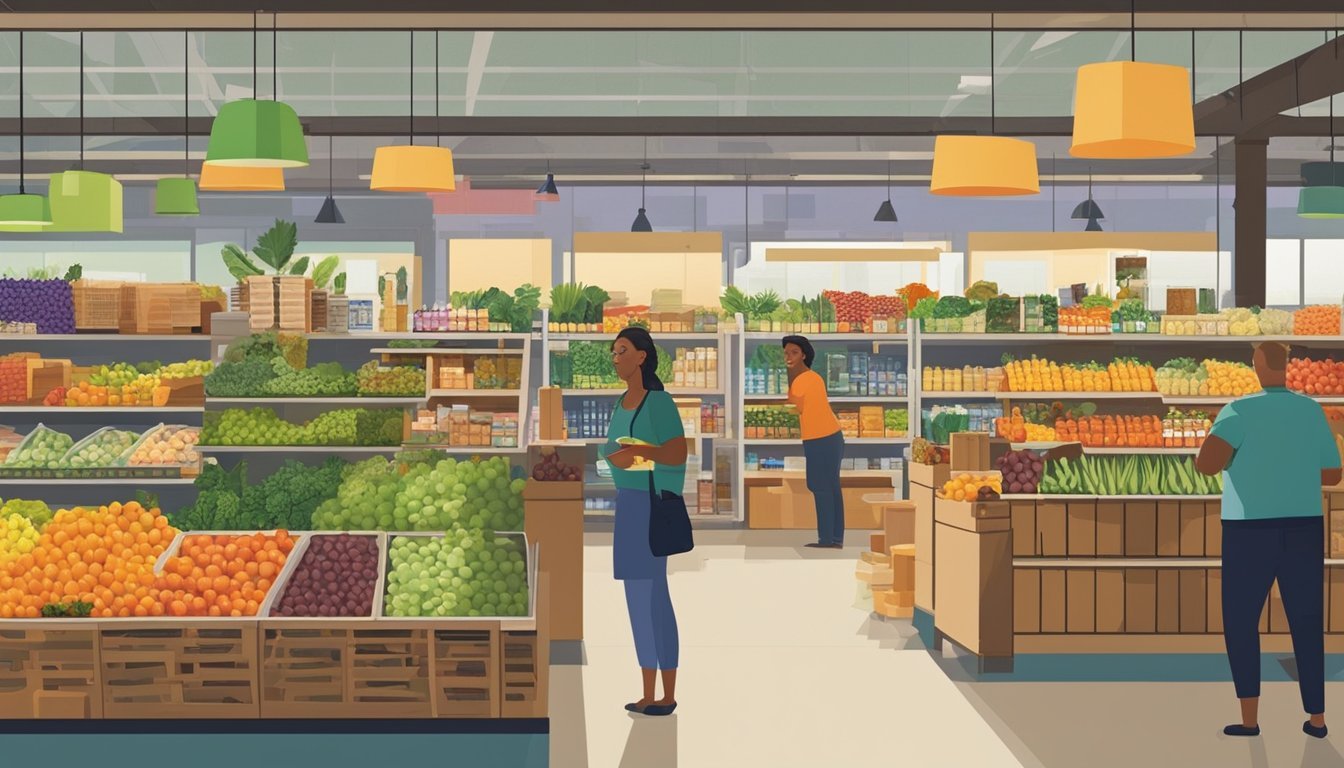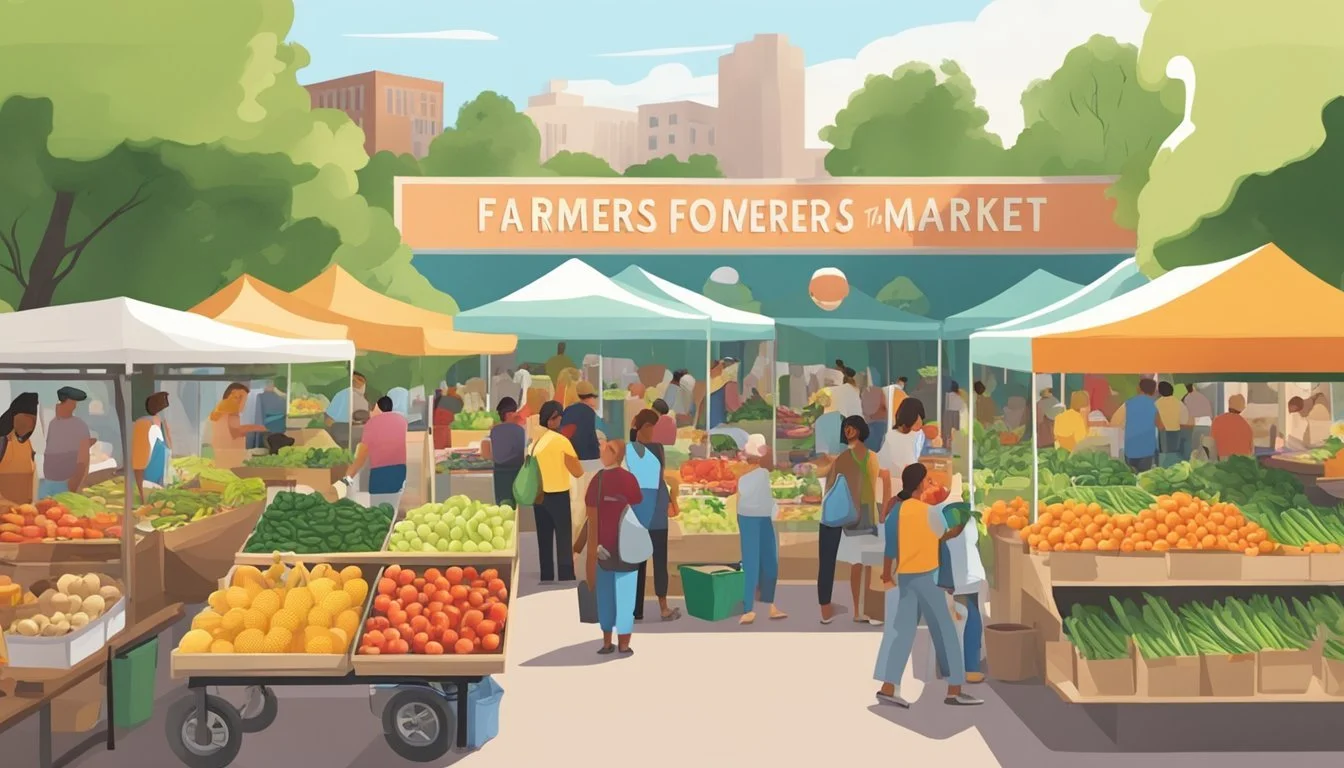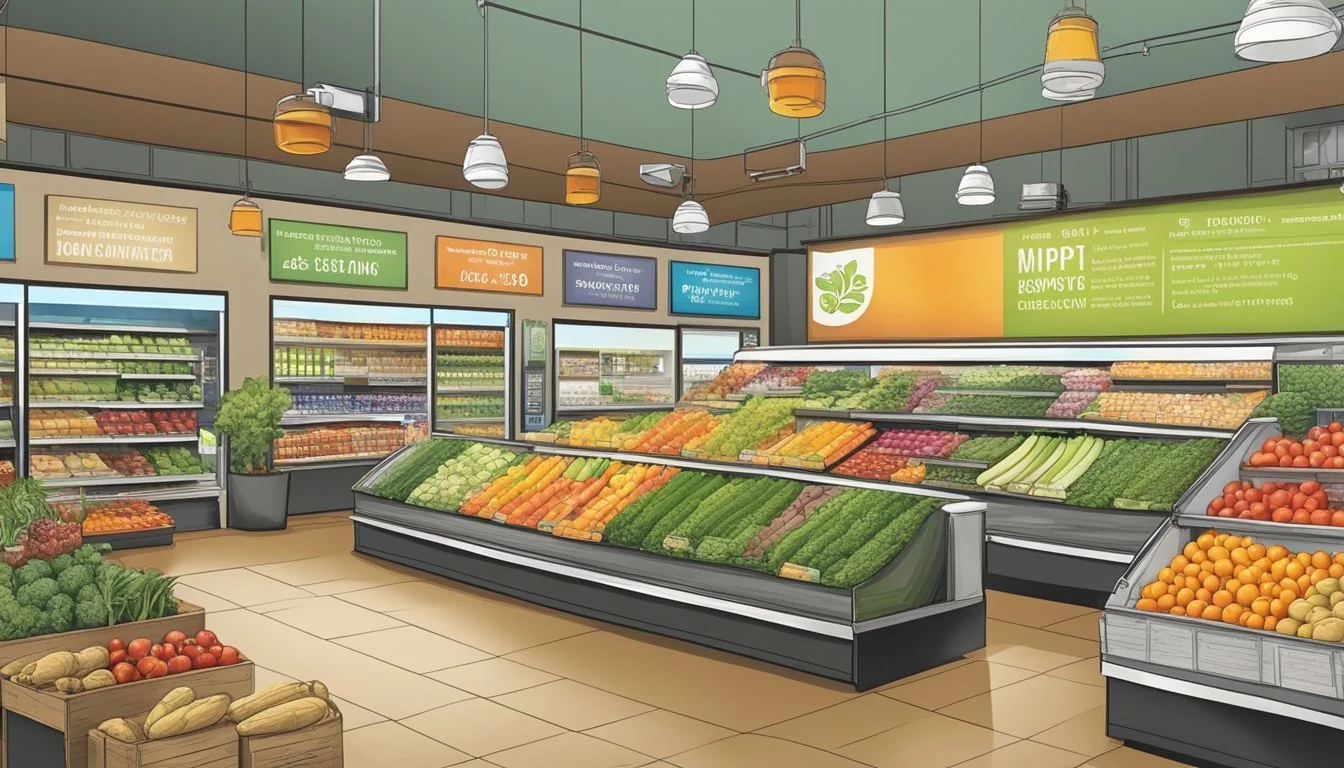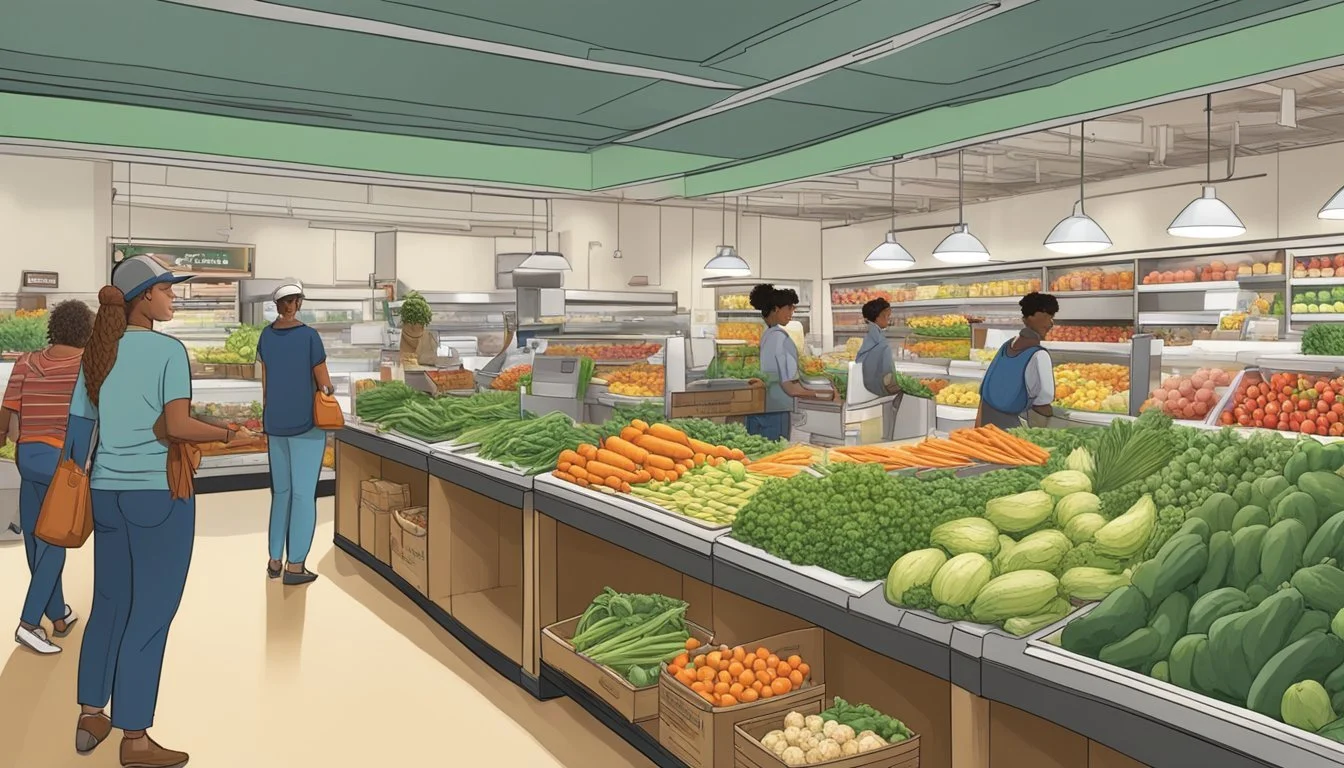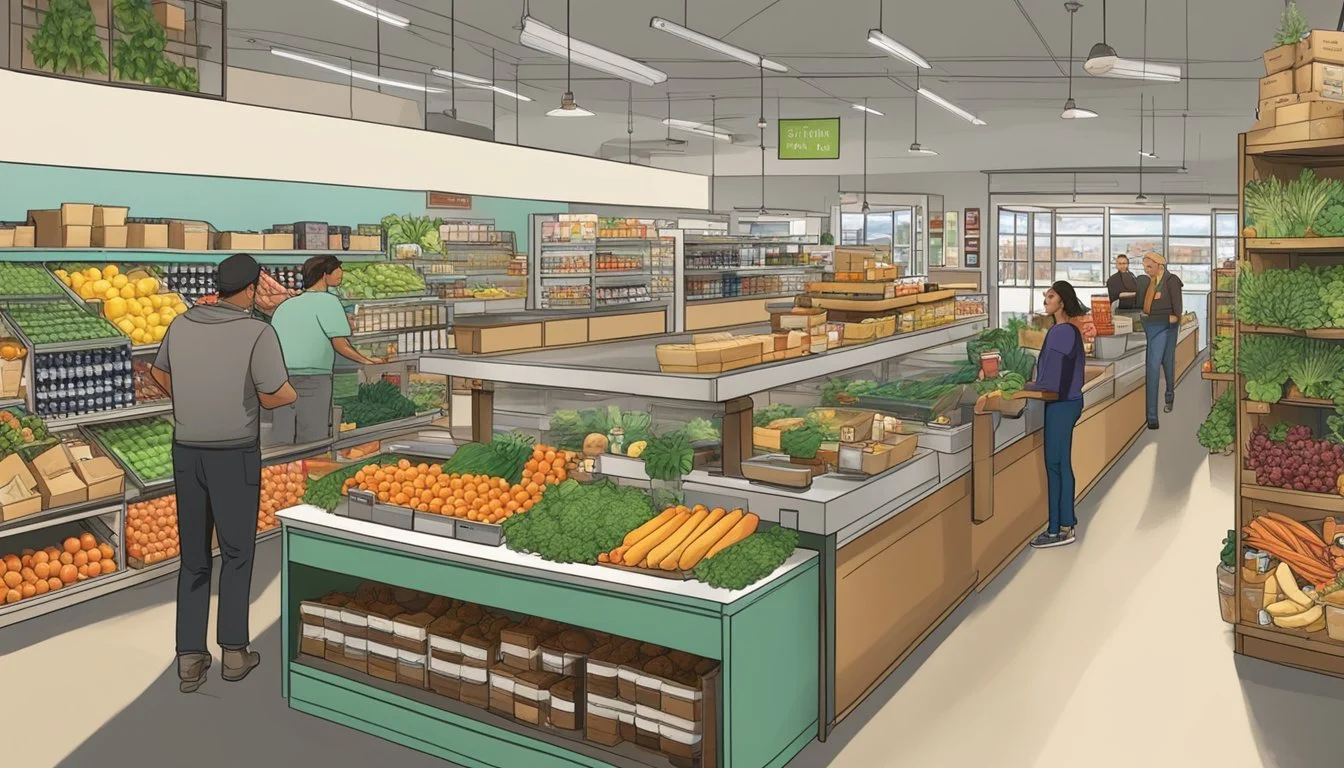Guide to Food Co-Ops in Indianapolis, IN
Your Essential Resource
Indianapolis, Indiana, a vibrant city with a growing emphasis on sustainable living and community-supported agriculture, offers residents the opportunity to explore food co-ops as a means to access fresh, locally-sourced produce and goods. Unlike conventional grocery stores, food co-ops in Indianapolis are renowned for fostering a sense of community ownership and engagement. They operate on the principles of cooperation and collective benefit, providing customers not just with groceries but with a stake in the food system itself.
One notable example of these community-centric enterprises is Basic Roots Community Foods, operating year-round in the heart of downtown Indianapolis. This cooperative is part of a broader movement that's reshaping the local food landscape by making nutritious food accessible and supporting the local economy.
Besides Basic Roots, the city is home to Indy's Community Food Co-op and Pogue's Run Grocer, the latter being the first community-owned grocery store under the Indy Food Cooperative. These establishments often offer a range of organic and specialty food products, contributing to the diversity of food sources while also educating the public about healthier food choices and sustainable practices. Through such cooperatives, Indianapolis residents can not only enjoy fresh produce but also actively contribute to the strength and resilience of their local food system.
Understanding Food Co-Ops
Food co-ops in Indianapolis are community-centered markets that offer a unique alternative to traditional grocery stores by focusing on good food and affordability. They operate on a cooperative model that empowers its members and supports local food security.
History and Philosophy of Food Co-Ops
Food co-operatives have a rich history centered around community organizing and democratic principles. Rooted in the idea of collective ownership, food co-ops in Indianapolis continue this tradition. They uphold the philosophy of mutual support and cooperation among members to ensure access to nutritious food and contribute positively to food and nutrition within the community.
How Food Co-Ops Work
Food co-ops operate differently from standard grocery stores. Here's a simple breakdown:
Ownership: They are owned by community members who pay a fee to become shareholders.
Decisions: These members have a say in business decisions during regular meetings.
Pricing: Products are priced to be affordable, with any profits typically reinvested into the co-op or shared among members.
Sourcing: They prioritize local produce, supporting nearby farmers and reducing food miles.
Benefits of Joining a Food Co-Op
Joining a food co-op in Indianapolis comes with several benefits. Members enjoy access to fresh, local, and often organic produce at lower costs, reflecting the co-op's commitment to affordability. Moreover, they become part of a community that directly contributes to enhancing local food security and promoting food nutrition through education and events. This communal approach helps strengthen the local food system and ensures members are part of a cooperative that values health, sustainability, and economic resilience.
Food Co-Ops in Indianapolis, IN
Indianapolis houses a diverse patchwork of food co-ops, offering fresh, locally-sourced produce and goods to the community. Ranging from downtown markets to membership-based cooperatives, these entities strive to serve both the local economy and various community needs.
Current Landscape of Indianapolis Food Co-Ops
Indianapolis's food co-op landscape is defined by community-driven initiatives that focus on making fresh, local produce and other food items available directly from farmers to consumers. The city's co-op model is dedicated to supporting local producers, creating a more sustainable food system, and providing healthy food options, particularly to low-income areas where access to fresh food is limited. These cooperatives often operate with the well-being of diverse members and communities at their core.
Notable Indianapolis Food Co-Ops
A few notable food co-ops in Indianapolis include:
Hoosier Harvest Market: Situated in Greenfield, IN, Hoosier Harvest Market connects Indiana food producers with consumers, emphasizing the importance of locally grown food products.
Indy's Community Food Co-Op: Known for its organic selection, Indy's Community Food Co-Op operates an online platform for ordering a variety of food options.
Basic Roots Community Foods: This cooperative offers a selection of healthy food choices and is involved in community events. While based in downtown Indianapolis, it serves a broader area, including surrounding cities.
Nature's Market: Starting from 1992, Nature's Market has been a champion of whole foods as well as natural and organic produce and meats.
Membership and Participation
Membership in Indianapolis food co-ops often involves contributing to the economic vitality of the cooperative itself and gaining access to a broad range of locally sourced products. Members typically have a say in the operational aspects of the co-op and enjoy benefits such as discounts or special offers. Participation in these cooperatives also helps foster community connection and directly supports local farmers and producers, reinforcing Indianapolis's commitment to locally-driven food sustainability.
Supporting Local Food Systems
In Indianapolis, farming and consumption are increasingly connected by networks that champion locally sourced and organically produced foods. These networks play a pivotal role in enhancing food security and accessibility within the community.
Role in Strengthening Local Agriculture
The presence of farmers' markets and food co-operatives in Indianapolis is instrumental in bolstering regional agriculture. They create a direct pipeline between local farmers and consumers, facilitating the distribution of farm-fresh produce, such as eggs, fruits, and vegetables. By prioritizing food that is fresh, accessible, and locally produced, Indianapolis sustains a network of growers and producers who can focus on organic and sustainable practices without the need for long-distance transportation. These initiatives not only support the local economy but also ensure that consumers have access to farm fresh and organic options in their diet.
Community Impact and Outreach
Food co-ops and urban farms within Indianapolis go beyond just selling food; they stand as neighborhood food champions, striving to alleviate food deserts by making healthy options more available in underserved areas. Outreach programs and partnerships with city initiatives, such as the Indy Food Fund and the Indy Food Council, are central to creating more equitable food systems. By engaging with the community at a grassroots level, these entities foster an environment where residents are encouraged to engage with and support urban farms, thereby promoting local food security and ensuring that all members of the community have access to nutritious food options. These efforts solidify the city's commitment to cultivating a robust and resilient local food ecosystem.
Nutrition and Food Quality
Nutrition and food quality are at the forefront of Indianapolis’s food conversation, emphasizing the value of local, fresh, and organic options available through food co-ops. By choosing food co-ops, residents have access to nutrient-dense foods that support both individual health and local agriculture.
Importance of Fresh and Natural Foods
Fresh and natural foods are essential for maintaining a balanced diet rich in vital nutrients. Food co-ops in Indianapolis prioritize freshness by offering produce that is often harvested within days of reaching the consumer, ensuring maximum nutrient retention. These venues are not just points of purchase; they're advocates of good food that fosters well-being.
Natural and Organic Range: These stores typically stock a wide variety of natural and organic foods, from leafy greens to colorful fruits, devoid of harmful pesticides and synthetic fertilizers.
Impact on Health: The consumption of these foods is linked with numerous health benefits, reducing exposure to chemical residues and contributing to a more robust immune system, among other advantages.
Sourcing Meat and Produce
The co-ops of Indianapolis are known for sourcing their meat and produce with a commitment to quality and sustainability. They champion the idea that the food one eats should not only be accessible but also support ethical farming practices.
Meat: Consumers looking for meat products at these co-ops can expect items that come from animals raised without unnecessary antibiotics or hormones. This includes a selection of beef, chicken, and pork where animal welfare is a prioritized factor.
Produce and Eggs: Co-ops often foster direct relationships with local farmers, ensuring that organic produce and eggs sold to the community support local agriculture, boost the economy, and reduce environmental impact by shortening the supply chain.
In summary, food co-ops invest in the health of their patrons and local food systems by providing access to fresh, natural, and organic foods, fostering a community that values nourishment and quality in what they consume.
Affordability and Access
Food cooperatives in Indianapolis understand the critical need for affordable and accessible food options, particularly for residents in low-income areas. They strive to offer a range of groceries at competitive prices, and some have initiatives to support members financially.
Pricing and Accessibility
Indianapolis food co-ops aim to provide an assortment of staple foods at affordable prices to ensure they are accessible to all community members. By prioritizing local and sometimes organically grown produce, they manage to keep prices reasonable without compromising on quality. Moreover, these co-ops are strategically located to serve low-income neighborhoods that might otherwise lack access to fresh and healthy food options.
Accessible Locations: Most food co-ops are situated in the heart of downtown Indianapolis or within reachable distances of most residents.
Affordable Groceries: They offer a selection of staples that are reasonably priced to suit different budgets.
Support Programs for Members
Co-ops often participate in federal assistance programs like SNAP and WIC to help lower-income members afford their groceries. Through this involvement, food co-ops not only provide an essential service to those facing poverty but also empower communities by improving food security.
SNAP Benefits: Eligible members can use their Supplemental Nutrition Assistance Program benefits to purchase groceries.
WIC Support: Women, Infants, and Children program participants find additional support at food co-ops, which accept the vouchers for eligible food items.
Community Engagement and Education
Food co-operatives in Indianapolis proactively engage with the community to promote healthy eating habits and sustainable food practices. They facilitate this through a variety of events and educational resources designed to enrich the local food culture.
Events and Workshops
The city’s food co-ops frequently host events and workshops aimed at sharing knowledge about nutrition and food preparation. Basic Roots Community Foods Cooperative, for instance, offers workshops that feature seasonal recipes and cooking demonstrations to help individuals understand how to utilize local farm produce. These gatherings serve to cultivate the community's tastes, making wholesome food more attractive and approachable.
Upcoming Events:
Cooking with Seasonal Vegetables
Introduction to Whole Foods Lifestyle
Resources for Healthy Eating
In addition to live events, Indianapolis food co-ops provide an array of resources to aid in the pursuit of a healthier lifestyle. They offer literature that ranges from beginner-friendly recipe books to more in-depth materials covering various dietary philosophies and nutrition insights.
Featured Resources:
Fresh Start: A Beginner’s Guide to Healthy Eating
Eating Local: Recipe Collection for Every Season
By organizing community-centric events and disseminating valuable educational content, these organizations strive to empower members to make informed food choices and to eat better.
Starting a Food Co-Op
In Indianapolis, initiating a food co-op requires careful planning and community involvement to ensure sustainable development and inclusive participation from diverse communities.
Steps to Establish a Food Co-Op
Research and Education: First, it is crucial to educate oneself about what a food co-op involves. Resource-gathering can involve reviewing materials such as the FCI Guide to Starting a Food Co-op, attending related workshops, and learning from existing co-ops.
Organizing Team Formation: Assemble a group of motivated individuals committed to the food co-op’s success. This team will lead the organization through its early stages, focusing on strategy, structure, and membership recruitment.
Business Plan Development: Craft a detailed business plan that includes market analysis, financial projections, and operational strategies. It will serve as a roadmap for the co-op and is vital for securing funding.
Community Engagement: A successful co-op requires robust community support. Engage with the local community to build interest and gather a diverse membership base, with attention to diversity in race and socioeconomic background.
Legal Structure: Determine the best legal and governance structure for the co-op, taking into account local laws. Cooperative principles should guide its formation to maintain fairness and equality among all members.
Financial Planning: Secure capital through member equity, loans, grants, or fundraising. Partnering with initiatives like the Food Co-op Initiative can provide critical financial resources and guidance.
Location and Suppliers: Identify an accessible location and build a network of growers and suppliers who align with the co-op’s values. This network should ideally support local producers and consider environmental sustainability.
Opening the Co-Op: With all elements in place, prepare for the public opening. This includes staff training, stocking, and marketing to ensure the co-op is well-received by the community.
Challenges and Considerations
Community Involvement: Securing active participation from the community can be challenging. Continuous outreach and engagement are essential to build a membership base that represents all segments of the community, including various races and socioeconomic backgrounds.
Funding: Gathering sufficient funds to cover initial costs can be difficult. Startups should explore a variety of funding sources, including community bonds, traditional loans, and support from cooperative networks.
Sustainability: Ensuring long-term sustainability presents another challenge. It requires sound financial management, adaptability to market changes, and consistent member value delivery.
Diversity: A food co-op thrives on diversity. Initiatives must proactively create inclusive policies and practices that attract and retain members and employees of all colors and races.
By navigating these steps and challenges with a clear strategy and community-centered approach, Indianapolis can foster a thriving, inclusive food co-op that meets the needs of its residents, supports local growers, and enriches the community it serves.
Glossary and Further Reading
Community-Supported Agriculture (CSA): A system in which consumers receive food directly from the farmers who produce it. By purchasing a "share," members financially support the farm and in return, receive a regular allotment of produce or other farm products.
Food Cooperative (Co-op): An enterprise owned and operated by its members to meet their common need for affordable and high-quality food. They function according to cooperative principles regarding equity, democracy, and mutual benefit.
Cooperatives (Co-ops): Organizations that are owned and run jointly by their members, who share the profits or benefits. Food co-ops focus specifically on providing food products to their members and often emphasize local, organic products.
Relevant Organizations and Resources:
Food Co-op Initiative (FCI): An organization that supports the establishment of new food cooperatives.
LocalHarvest: A directory of CSAs, co-ops, and organic food producers.
Indiana Cooperative Development Center (icdc.coop): Offers resources for those looking to start or join a cooperative.
Recommended Reading:
"Starting a Food Co-op: A Step-by-Step Guide" - Provides insights and practical steps for creating a local food cooperative.
"The Role of Food Co-ops in Community Development" - Discusses how food co-ops contribute to local economies and community building.
"The Benefits of Community-Supported Agriculture" - Explores the impact and value of CSAs in local food systems.
For accurate and detailed information on starting or joining a food co-op in Indianapolis, interested individuals can refer to the Food Co-op Initiative or the Indiana Cooperative Development Center, both of which provide valuable guidance and support.

